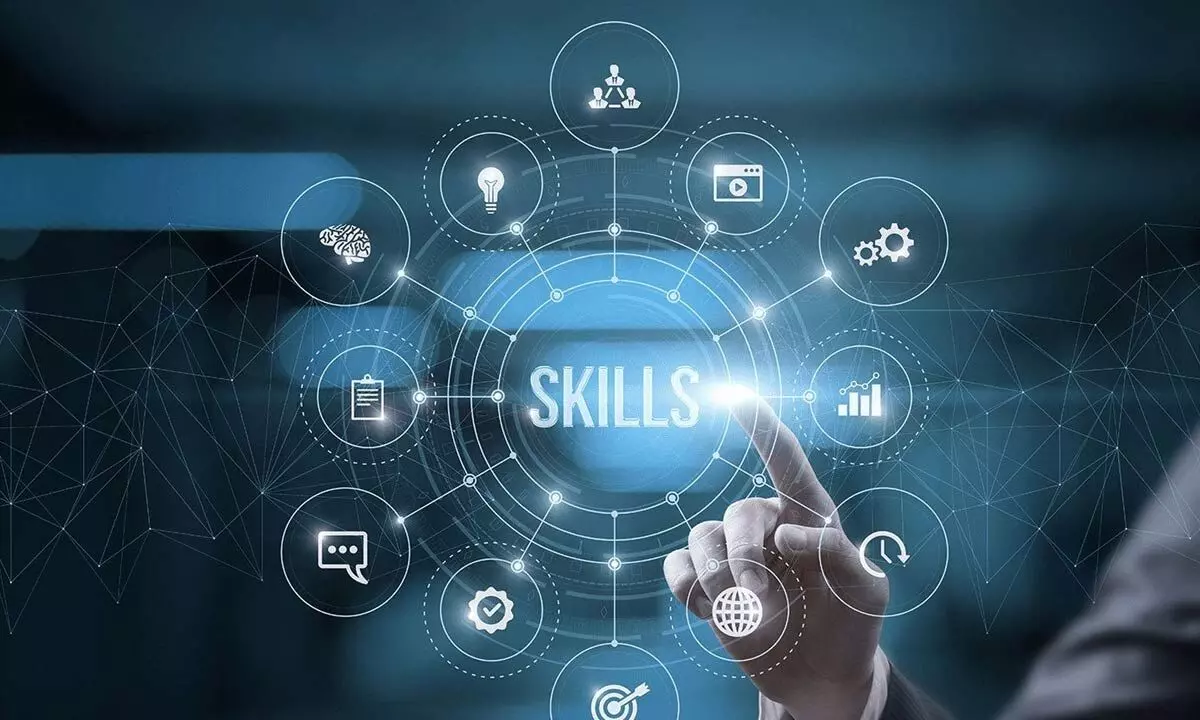The essential balance of degrees and skills

In today’s dynamic job market, the debate between the value of degrees and the importance of skills is more active than ever
In today’s dynamic job market, the debate between the value of degrees and the importance of skills is more active than ever. Institutions and students must work together to create a generation that is not only academically qualified but also adaptable, innovative, and ready for real-world challenges.
The strengths of formal education
Despite the growing emphasis on skills, degrees play a vital role in helping learners to grab the knowledge and holds a major value in many ways:
1. Comprehensive knowledge base
A detailed university education offers in-depth analysis of a subject, enabling students to instill fundamental theories and concepts. There are fields like engineering, medical and law that need structured education to grab critical thinking and ethical standards.
2. Credential and credibility
One of the fundamental aspects of getting a degree is that it provides formal recognition, boosting confidence in learners and giving them the ability to perform in a given field. Many companies still use degrees as the selection criteria in the hiring process.
3. Networking and career growth
Universities also emphasise the networking opportunities that they provide to benefit and elevate students’ careers. They cultivate alumni connections, offering formal mentorship programs and collaborations with industries. These relationships provide insights to students so that they can tap to unlock job opportunities.
While degrees provide structured knowledge, they sometimes lack practical knowledge and hands-on experience demands. This is where skill-oriented learning centers.
The rise of industry-relevant skills
Nowadays, candidates are gearing up for advanced learning and practical knowledge so that they should be ready when it comes to showcasing their skill. Employers today are in search of candidates who can be ready from day one. A degree may open doors, but practical knowledge will prepare you to create new standards and achieve bigger success. It helps in solving real-world challenges and adapting to changing work nature.
1. Employers prioritise skills
Top-notch companies have made the transition to a skills-based recruitment strategy, prioritising candidates’ problem-solving skills, experience, and technical expertise over formal education.
2. The digital transformation of work
As technology evolves at a fast pace, sectors today demand skills that are not covered by traditional degree courses. Specializations such as data science, artificial intelligence, digital marketing, and cybersecurity are changing too quickly for traditional academic syllabus to catch up.
3. Micro-credentials and certifications are on the rise
There are many edutech platforms that have gained popularity and massive attention as they have provided short-term skill based courses.
These courses foster systematic and specialized training programs that enable candidates to uplift quickly and stay updated in their respective fields.
Evaluating the right balance: Degrees + skills = career success
Rather than debating whether degrees or skills matter more, the real solution lies in integrating both. A well-balanced approach includes:
1. Bridging academic learning with practical experience
Universities and colleges must upgrade their syllabus to inculcate real-world applications, industry-specific tasks, and case studies. It is mandatory to implement internships and apprenticeships to ensure students must gain hands-on experience.
2. Continuous upskilling and lifelong learning
Gone are the days when one degree was sufficient to survive forever. In order to be Professional, one must upskill through professional programs and certifications. A degree can be regarded as the initial point, with lifelong learning being the norm.
3. Industry collaboration in education
Academic institutions must collaborate with industry and business leaders to create courses that match with current market demands. This can comprise guest lectures, workshops and programs led by industry experts.
4. Soft skills matter as much as technical skills
Expertise only in technicality is not enough. Employers often value critical analysis, problem solving, communication skills, and teamwork. Institutions must enlighten students on these skills by conducting leadership training, group projects and learning opportunities.
The enduring strength of formal education
Despite the rise of skills-based hiring, degrees remain crucial for building a strong knowledge base, gaining credibility, and expanding professional networks. Fields like engineering, law, and medicine still rely heavily on structured education. Universities also offer valuable mentorship, alumni networks, and career growth opportunities, ensuring that students have both theoretical understanding and access to real-world opportunities
Skills: The key to future-proof careers
With industries evolving rapidly, the demand for specialised, practical skills has never been higher. Employers now prioritise hands-on experience, problem-solving abilities, and technical expertise over just formal qualifications. Digital skills, micro-credentials, and continuous upskilling are critical in bridging the gap between academic knowledge and workplace demands. Building a career today means embracing both lifelong learning and staying agile in a technology-driven world
(The author is Chairman and CEO of SNVA Edutech – Careerera).








